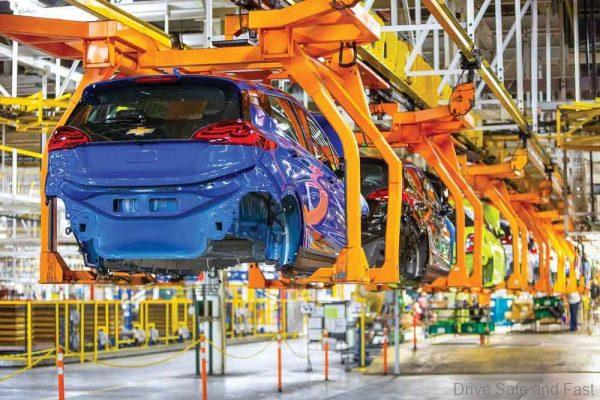Or do they?
It is a well known fact that electric cars are loveable known around the world as a pollution-free form of transport. However, there is the carbon cost of the electricity used to power or charge up the battery packs that need to considered.
There are also large uncertainties around the emissions associated with the production of electric vehicle (EV) batteries where different studies from around the world produce widely differing numbers. As EV battery prices fall and vehicle manufacturers start including larger batteries with longer driving ranges, battery production emissions can have a larger impact on the climate benefits of electric vehicles.

Around half of the emissions from battery production come from the electricity used in manufacturing and assembling the batteries. Producing batteries in regions with relatively low-carbon electricity or in factories powered by renewable energy, as will be the case for the batteries used in the best-selling Tesla Model 3, can substantially reduce battery emissions.
In 2018, researchers claimed that China’s massive push to get people driving electric vehicles could actually worsen its carbon output, given that much of the electricity is produced from fossil fuels such as coal.
Recently the University of Exeter study has found that even with substantial amounts of fossil fuel in the energy mix, electric cars do lead to lower carbon emissions overall. Already, under current conditions, driving an electric car is better for the climate than conventional petrol cars in 95 per cent of the world, with the only exceptions being in countries such as Poland where electricity generation is still mostly based on coal.

Average lifetime emissions from electric cars are up to 70 per cent lower than petrol cars in countries such as Sweden and France (which get most of their electricity from renewables and nuclear) and around 30 per cent lower in the UK. In a few years, even the more inefficient electric cars will be less emission-intensive than the newest petrol cars in most countries, as electricity generation is expected to be less carbon-intensive than today.
The study projects that by 2050, every second car on the streets could be electric. This would reduce global CO2 emissions by up to 1.5 gigatons per year, which is equivalent to the total current CO2 emissions of Russia. The study also looked at electric household heat pumps and found they, too, produce lower emissions than fossil-fuel alternatives in 95 per cent of the world. Heat pumps could reduce global CO2 emissions in 2050 by up to 0.8 gigatons per year, or roughly equal to Germany’s current annual emissions.
“We started this work a few years ago and policy-makers in the UK and abroad have shown a lot of interest in the results,” said Dr Jean-Francois Mercure, of the Global Systems Institute at the University of Exeter.

“The answer is clear: to reduce carbon emissions, we should choose electric cars and household heat pumps over fossil-fuel alternatives.”
Dr Florian Knobloch, of the Environmental Science Department at the University of Nijmegen (The Netherlands), and the lead author of the study, added: “In other words, the idea that electric vehicles or electric heat pumps could increase emissions is essentially a myth.
“We’ve seen a lot of discussion about this recently, with lots of disinformation going around. Here is a definitive study that can dispel those myths. We have run the numbers for all around the world, looking at a whole range of cars and heating systems.
“Even in our worst-case scenario, there would be a reduction in emissions in almost all cases. This insight should be very useful for policy-makers.”

The study examined the current and future emissions of different types of vehicles and home heating options worldwide. It divided the world into 59 regions to account for differences in power generation and technology. In 53 of these regions which include all of Europe, the US and China, the findings show electric cars and heat pumps are already less emission-intensive than fossil-fuel alternatives.
These 53 regions represent 95 per cent of global transport and heating demand and, with energy production de-carbonising worldwide, Mercure said the “last few debatable cases will soon disappear”. The researchers carried out a life-cycle assessment in which they not only calculated greenhouse gas emissions generated when using cars and heating systems, but also in the production chain and waste processing.